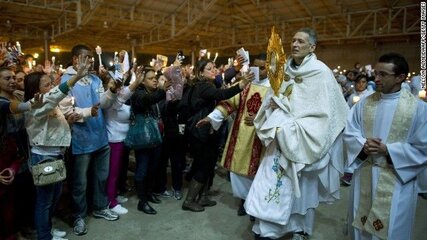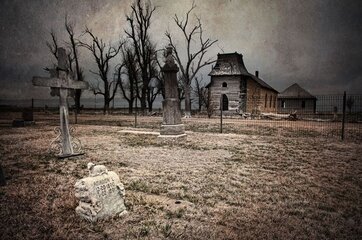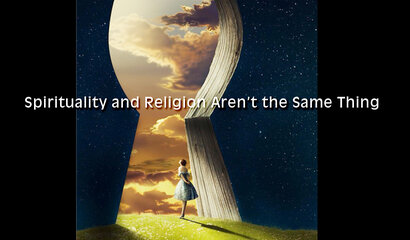- Messages
- 2,145
- Reaction score
- 5
- Points
- 28
^ Here we go again. If you will care to read outside of your regular source canon, reasonsforjesus, you will find a larger world outside of its suffocating, limited worldview. As it features those very few who leaves atheism for theism, it neglects the larger number leaving theism for atheism. I mentioned clergyproject, which helps those leaving their faiths in droves, not a trickle few, mind you, and you could still go there to get a glimpse of what's really happening in the larger context of society.
As for Asst. Prof Rossiter's views, it's safe to assume he is of the atheist type who was less grounded on the deeper foundations of atheism, just in it along for the ride, as happens also on the other fence of the divide, the theists who are also not inclined to check the basis of their denominations.
Why do I say that? Well, for one thing a few readings on Rosseau, Voltaire, Spinoza, Kant of the classical thinkers would have given him a glimpse of what he's missing in establishing a reasonable view of morality in society. It's the reason why we have the Magna Carta and the American Constitution after all.
If he dug more, he would have found Rand's Objectivist model the anchor to an objective morality. I doubt he's even aware of Clarke's views posted above showing how religions' posturings misled people to believe morality is tied up to some religion, when in fact morality exists outside of any religion's grasp and is totally independent of them. But again, people don't see how religions effectively hijack all the good things that mean to society.
As for Asst. Prof Rossiter's views, it's safe to assume he is of the atheist type who was less grounded on the deeper foundations of atheism, just in it along for the ride, as happens also on the other fence of the divide, the theists who are also not inclined to check the basis of their denominations.
Why do I say that? Well, for one thing a few readings on Rosseau, Voltaire, Spinoza, Kant of the classical thinkers would have given him a glimpse of what he's missing in establishing a reasonable view of morality in society. It's the reason why we have the Magna Carta and the American Constitution after all.
If he dug more, he would have found Rand's Objectivist model the anchor to an objective morality. I doubt he's even aware of Clarke's views posted above showing how religions' posturings misled people to believe morality is tied up to some religion, when in fact morality exists outside of any religion's grasp and is totally independent of them. But again, people don't see how religions effectively hijack all the good things that mean to society.










